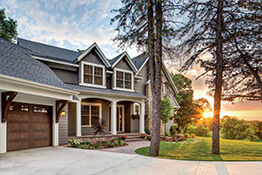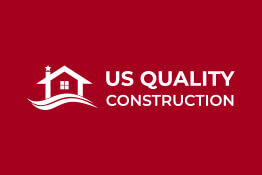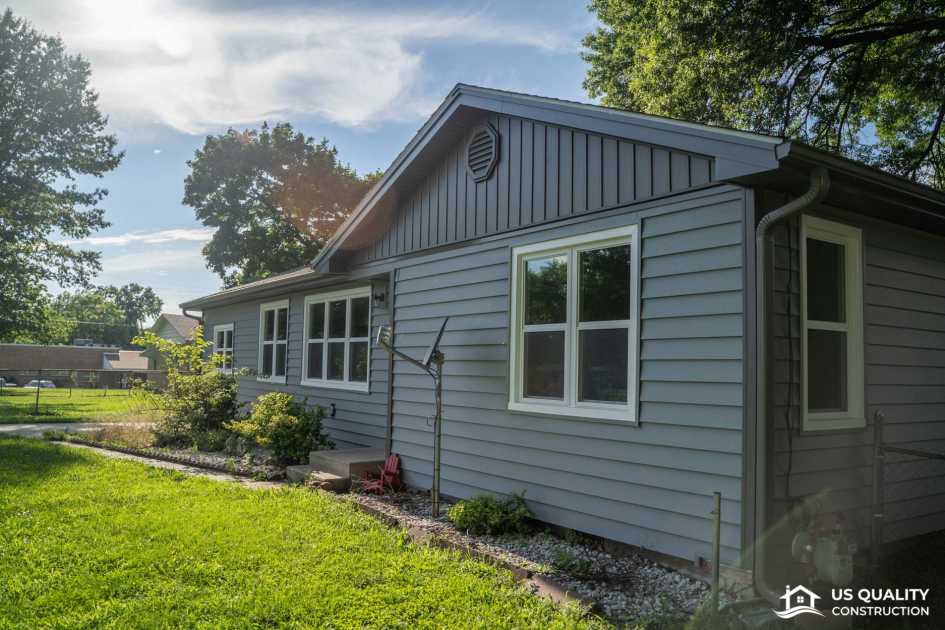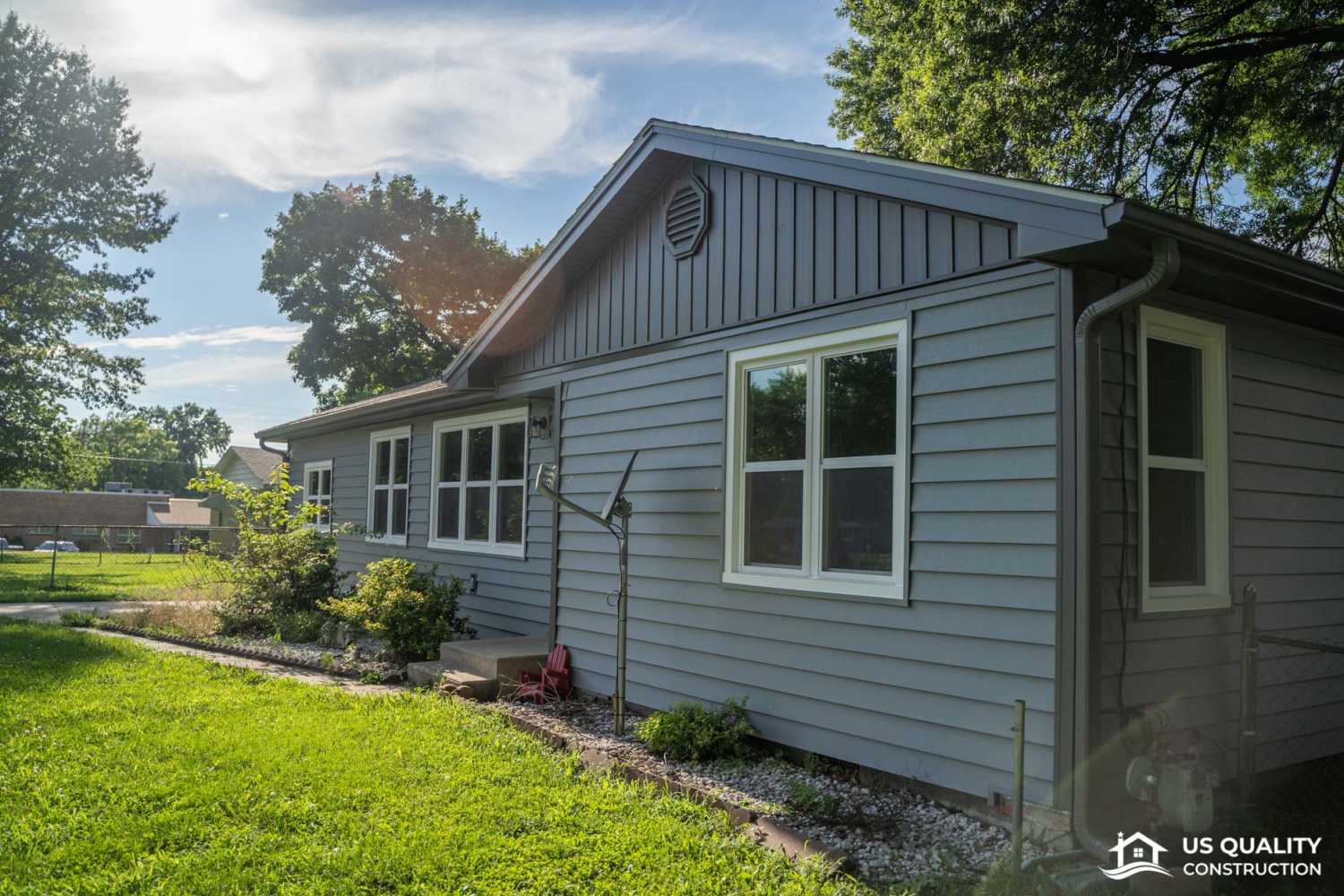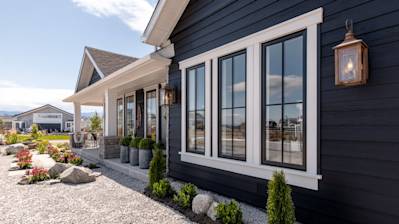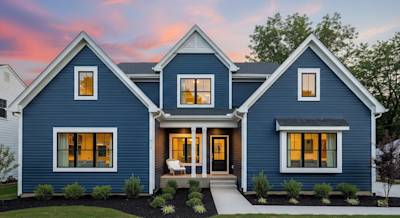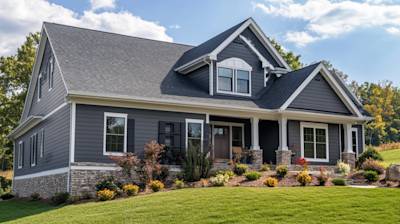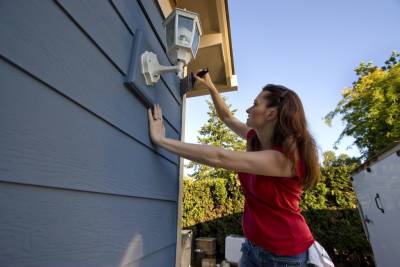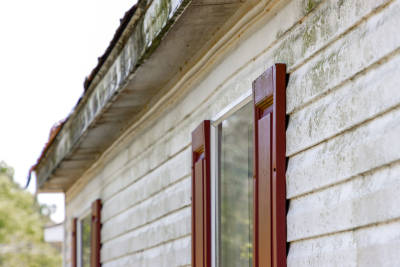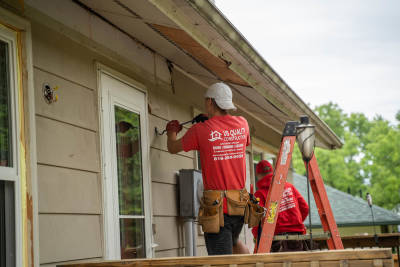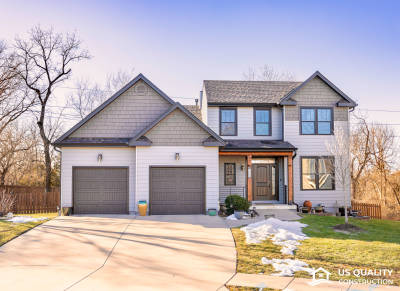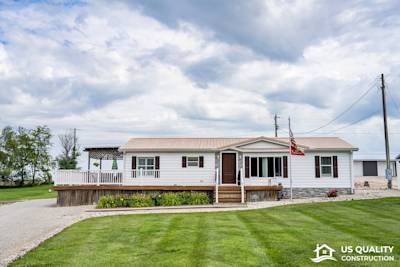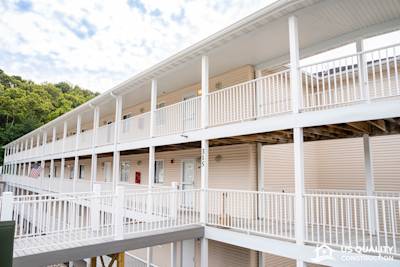The Census Bureau's Survey of Construction showed that vinyl is the most common siding material on new single-family houses. Because this type of siding is so popular, most people do not consider all of the pros and cons before choosing the type of siding for their home.
Do you want to learn more about vinyl siding to see whether or not you should use it on your home exterior? Keep reading this article to see the pros and cons of vinyl siding and to find reliable siding installers for your home project.
Pros of Vinyl Siding
There are many great reasons that you should consider installing vinyl siding in your home. Whether you are looking for a better price point or a material that is easy to maintain, vinyl is a great choice. Here are some of the top benefits of using vinyl siding on the exterior of your house.
1. Great Price
First and foremost, vinyl siding is very affordable and has great price points. This makes it an option for anyone, no matter their budget. Compared to metal, wood, or other types of siding, it's more economical.
If you are looking to save money when you are building or renovating part of your home, using vinyl siding is an easy way to do this.
2. Plenty of Options
Vinyl siding has plenty of options, so you are sure to find a product that you love. You can choose from many siding color options to fit your personal style preferences. Whether you want neutral shades or bright shades, using colored vinyl can increase the curb appeal of your home!
Vinyl siding also has many options for the size and texture of your vinyl. When you are choosing what materials you want to use for the exterior of your home, vinyl makes the possibilities endless.
3. Water-Resistant
Because vinyl siding is made out of plastic, it is very water-resistant. Other materials, like wood, will often absorb water and warp or even rot. When you use vinyl siding, you don't have to worry about it being damaged by water.
4. Low-Maintenance
If you are looking for a low-maintenance option for siding, vinyl is a great choice. Because vinyl siding is meant for outdoor use, it is very resistant to weathering and other damage.
Unlike with wood and other materials, you will not have to spend hours each year maintaining it. If it gets dirty, you can simply hose down the surface.
5. Easy to Repair
Although vinyl siding can break or crack easily with too much force, it is also quite easy to repair. Because vinyl can be installed in several pieces, you can simply remove the broken piece and attach a new one. This can also save you money, as you will not have to replace entire sections of your siding.
6. Fast installation
Finally, vinyl siding is very fast and simple to install! Many people try to DIY this project, but the labor costs for installation aren't very high, as it is not a demanding process. When you use vinyl, your home improvement project will be over much faster.
Cons of Vinyl Siding
While there are many benefits of vinyl siding, there are also a few drawbacks. These include durability, sustainability, and more.
1. May Fade
One of the biggest drawbacks of using vinyl siding is that it may fade. This is especially true if you choose to use a dark vinyl color. If your home gets a lot of direct sunlight, the UV rays from the sun can lighten the color of your vinyl.
2. Less Durable
Vinyl material is also not as durable as other types of siding. This may make it easy to break. For example, if one of your children accidentally kicks a ball into the side of your house, the vinyl siding may crack. In fact, even a strong enough windstorm can break your vinyl siding off the side of your home.
However, as mentioned before, vinyl is quite easy and inexpensive to repair.
3. Cannot Be Painted
Often, vinyl siding cannot be painted. If your vinyl has faded and you want to add more color, you may have to get your vinyl replaced. While some types of vinyl can be painted, it requires a professional to make sure it is done correctly.
Painting vinyl can also affect durability. For example, the paint may be more likely to peel and get damaged in harsh weather.
4. Less Sustainable option
One drawback of vinyl is that it is a less sustainable option when compared to other types of siding. Because it is made from plastic, it can lead to more plastic waste in landfills. While some places allow you to recycle siding, these may be more difficult to find.
If you are concerned about your environmental impact, you may want to buy your vinyl siding from a company that uses green or recycled material for its siding products.
5. May Warp
Finally, vinyl siding may warp if it is exposed to too much heat. For example, if you have an outdoor fire pit or grill, having it too close to your vinyl may lead to the melting or warping of your vinyl siding.
If you live in an area with extremely hot weather in the summer months, you may want to either install some type of shade to protect your siding or use a different material.
Find a Vinyl Siding Contractor Today
While there are a few drawbacks to vinyl siding, the benefits far outweigh the costs. Not only is does it have a great price that can fit any budget, but it is easy to repair, maintain, and install. There are plenty of options, so you are sure to find a type of vinyl that you will love for your home.
Do you want to learn more about the benefits of vinyl siding and how it affects your home value? US Quality Construction can help!
Contact our team today to learn more about our siding installation and replacement window services or to get a free estimate from our siding contractors for your vinyl installation.
Tags: vinyl siding contractor,
